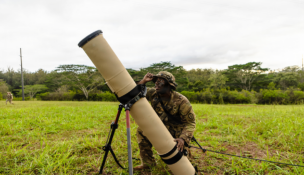Virginia redistricting amendment advances to the Senate
Virginia Business //January 28, 2019//
A constitutional amendment aiming to create an independent redistricting commission in Virginia has reached the Senate floor and may come up for a vote this week.
Under the amendment, an independent commission — instead of legislators — would redraw districts for the U.S. House of Representatives, Virginia Senate and House of Delegates in 2021 after the U.S. Census Bureau releases new population and demographic data.
Sen. George Barker, D-Alexandria, who is sponsoring the amendment, said SJ 306 would reduce the influence that politicians have in the redistricting process and would limit their ability to draw racially and politically gerrymandered districts.
“It doesn’t give the legislature the type of control in the process that it has now and that it’s had for many years,” Barker said.
During the 2011 redistricting process, the General Assembly redrew several districts in the House of Delegates and U.S. House of Representatives that have since been struck down by the U.S. Supreme Court because they diluted the voting power of African-American voters. Those racially gerrymandered districts had to be redrawn by a court-appointed expert.
Barker said Virginia needs an independent redistricting commission to ensure that this won’t happen again.
“I think that’s critical for making us the most effective General Assembly that we can be,” Barker said.
The 16-member commission would consist of eight legislative members and eight citizen members.
Of the eight legislative members, four would come from the Senate, and four would come from the House, with equal representation given to each political party.
The eight citizen members would be chosen this way: First, a committee of five retired judges of the circuit courts of Virginia would nominate 16 people — four Democrats, four Republicans and eight independent voters. Then, House and Senate leaders would pick eight names from the list to be on the commission — two Democrats, two Republicans and four independents.
Any plan drawn up by the commission would have to be agreed upon by at least six of the eight legislators and six of the eight citizen members. The plan would then be sent to the General Assembly for an up-or-down vote. The General Assembly would not be able to make any amendments to the plan.
The commission would be required to submit its plans for the Senate and House of Delegates districts within 45 days of the release of census data and plans for the U.S. House of Representatives within 60 days.
If the commission fails to submit a plan by its deadline, the General Assembly fails to adopt a plan by its deadline or the governor vetoes a plan, districts would be decided by the courts.
“We think this a fair and balanced approach,” Barker said. “We think it provides a lot of protections, and there are a lot of checks and balances in there to get to the best decision for the commonwealth.”
Barker’s proposal faces a long road to be added to the Virginia Constitution. Constitutional amendments must pass in two legislative sessions and then be approved by voters in a statewide election.
A similar amendment, SJ 274, was killed in committee earlier this week. That amendment also would have created an independent redistricting commission, but the makeup of the commission differed slightly from Barker’s amendment.
SJ 274, proposed by Republican Sen. Emmett Hanger of Augusta and Democratic Sen. Mamie Locke of Hampton, would have required a 10-member commission of citizens to establish legislative and congressional districts following a 2020 census. No legislators would serve on the commission.
The Senate Privileges and Elections Committee voted 9-5 to kill the proposal.
Lawmakers on both sides of the aisle have said they support redistricting reforms, and an advocacy group called One Virginia 2021 has pushed for a nonpartisan approach to redistricting.
Brian Cannon, executive director of One Virginia 2021, said it was disappointing that SJ 274 wouldn’t move forward, but he was excited that Barker’s amendment had made it to the Senate.
“If passed, this amendment could significantly change the way districts are drawn in Virginia,” Cannon said.
In a speech Thursday at the University of Virginia, former Gov. Terry McAuliffe called gerrymandered congressional districts one of the “worst things to happen to democracy.”
“I support all 50 states having independent, nonpartisan commissions draw these lines,” McAuliffe said.
i

















